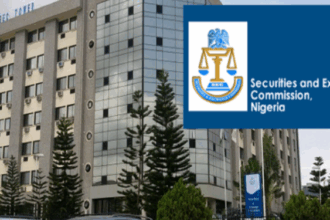The House of Representatives has asked the federal government to suspend the Chief Executive Officer of the Nigerian Midstream and Downstream Petroleum Regulatory Authority, Farouk Ahmed, pending the conclusion of investigations into his alleged unguarded statements about Dangote Refinery.
ATTENTION: Click “HERE” to join our WhatsApp group and receive News updates directly on your WhatsApp!
The House of Representatives has called for the suspension of Farouk Ahmed, CEO of the Nigerian Midstream and Downstream Petroleum Regulatory Authority (NMDPRA), over his alleged comments about Dangote Refinery.
The lawmakers adopted a motion sponsored by Esosa Iyawe, member representing Esosa Federal Constituency, Edo State, during Tuesday’s plenary.
Iyawe stated that claims of adulterated fuel in the Nigerian market must be thoroughly investigated, as fuel quality can impact engine hardware.
He noted that ultra-low sulphur diesel is recommended for all types of power plants, storage tanks, industrial facilities, fleets, and heavy equipment, as high sulphur content in fuels causes damage to engines and contributes to air pollution.
The lawmaker quoted Farouk as saying that the diesel produced by the Dangote Refinery is inferior to imported ones, with a high sulphur content of between 650 to 1,200 ppm.
However, Iyawe said that a test supervised by members of the House of Representatives revealed that Dangote’s diesel had a sulphur content of 87.6 ppm, whereas imported diesel showed sulphur levels exceeding 1800 ppm and 2000 ppm.
Iyawe condemned Farouk’s statement, saying it was “unguarded, unprofessional, and unpatriotic.”
READ ALSO: VeryDarkMan Accuses Tinubu Administration of Pressuring Aliko Dangote
He alleged that the NMDPRA boss was giving licenses to traders who import high-sulphur content diesel, posing health risks and financial losses to Nigerians.
A joint committee of the House is investigating Farouk’s allegations against Dangote Refinery and conducting a legislative forensic investigation into the presence of middlemen in crude trading and alleged unavailability of international standard laboratories to check adulterated products.

